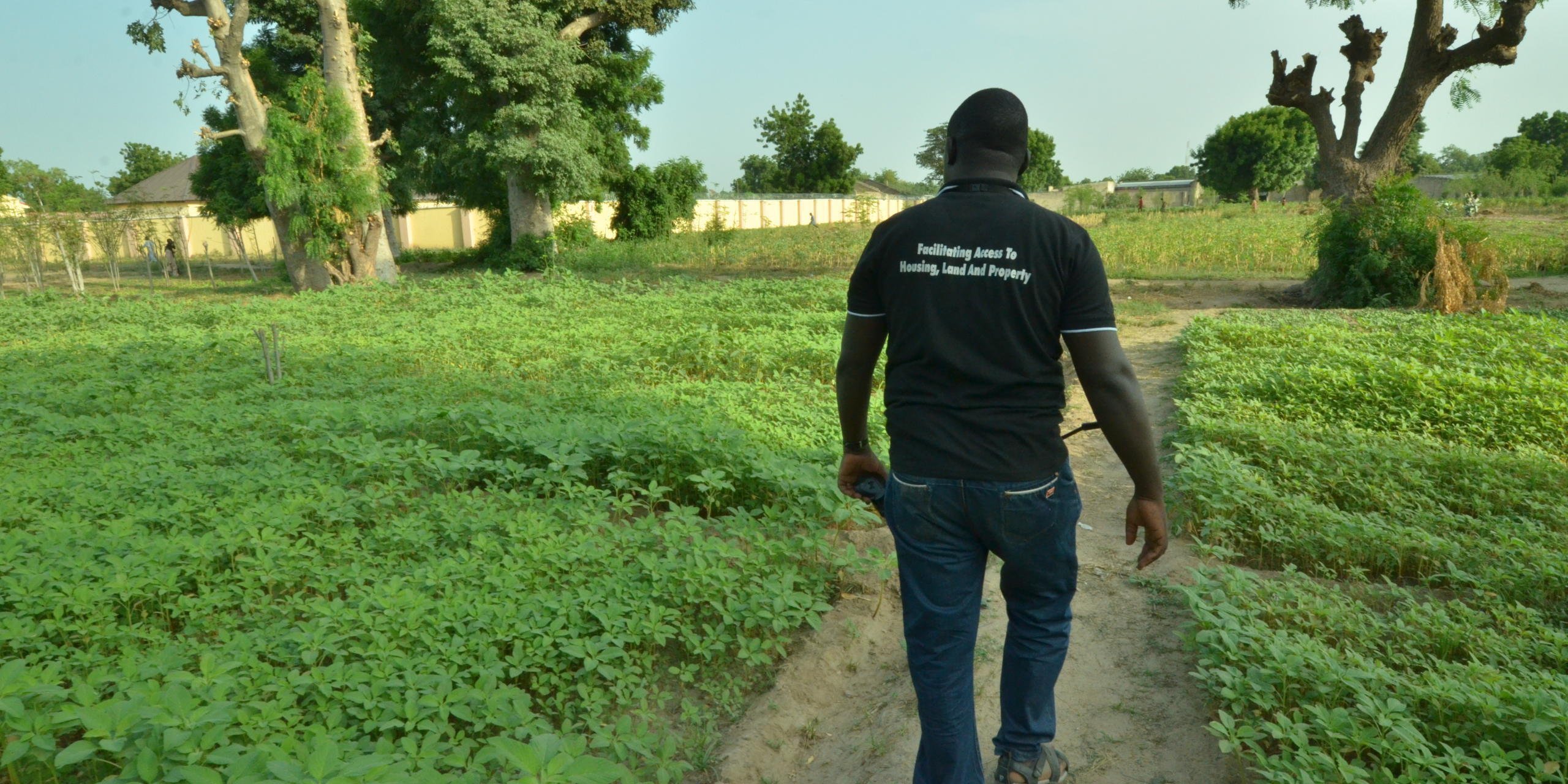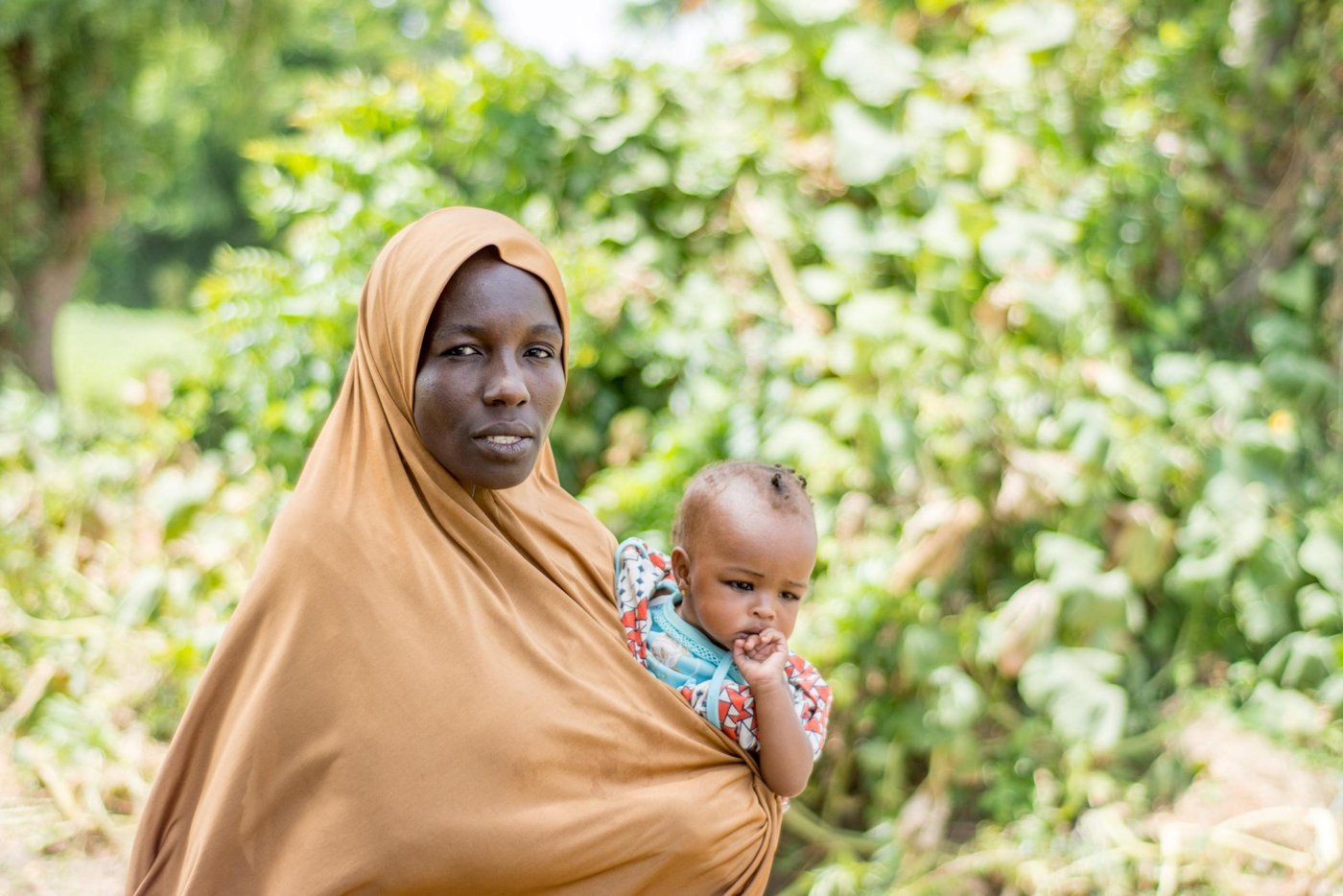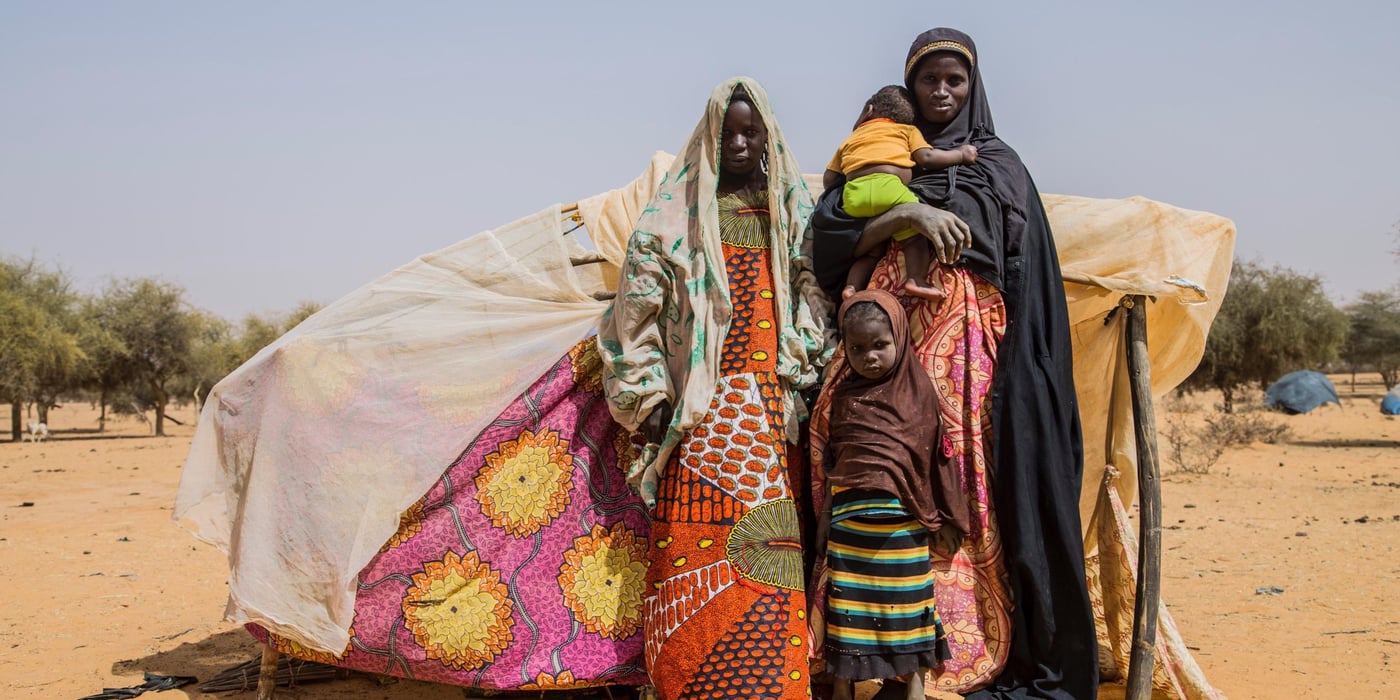
Danladi Mamza is someone you instantly want on your team. He’s bursting with energy, enthusiastic and gives the impression he can do just about anything he sets his mind to. As a food security expert with the Norwegian Refugee Council (NRC) in Nigeria, Mamza’s business is food. But that doesn’t always mean feeding people.
The war between the Nigerian government and the armed group Boko Haram has been going on for eight years, claiming more than 20,000 lives according to the UN. But there’s another casualty on top of soldiers and civilians: its agriculture. The widespread violence in the north-east of the country has virtually destroyed all farms, with its farmers fleeing for safety in displacement camps. They’re left without the first non-negotiable item they need for their trade: land.
Mini-farm collectives
Mamza organises a handful of people to form a collective, and teaches them to farm in a communal garden. He provides them with seeds to grow spinach, carrots and Amaratus, a local vegetable found in West Africa.
“Most of the people I work with were farmers before they fled their homes,” says Mamza. “But [specialising in] traditional farming. I teach them modern methods, using fertiliser and quick growing seeds. It’s been incredible to watch these mini-farms grow.”
Now local market sellers are coming to these farmers to buy their produce. Not only are they self-sufficient, but they’re making a profit.
Thirty-year-old Hajja, one of the participants in Mamza's initiative, further explains how it helps displaced families interact with the locals. “There’s a good relationship between our two communities,” she says. “We happily stay together without any issue.”
Most of the people I work with were farmers before they fled their homes. But [specialising in] traditional farming. I teach them modern methods, using fertiliser and quick growing seeds. It’s been incredible to watch these mini-farms grow.
First-hand experience
Mamza has come a long way. In 2009, he and his siblings were forced to flee themselves, from their hometown of Maiduguri to Adamawa State. The armed group Boko Harm had overtaken Maiduguri and its residents fled. They looted and pillaged, burned down houses and killed civilians.
Mamza has since gone back, and feels a connection to the displaced communities he now helps. “I have gone through something similar,” he recalls. “I can relate.”

A region in crisis
Conflict has engulfed Nigeria’s northeast region for the past eight years. Over 1.8 million people have been internally displaced, and another 220,000 have fled across the border to neighbouring Cameroon, Chad and Niger.
In addition to the conflict, the region has been on the verge of famine this year. Some 5.2 million people are food insecure, and almost half a million children are severely malnourished. Work like Mamza’s is crucial to help reverse the food crisis.
Despite the humanitarian situation, Mamza is optimistic about the future of the region where he was born and bred: “Our people are resilient. They will come back from this even stronger.”




